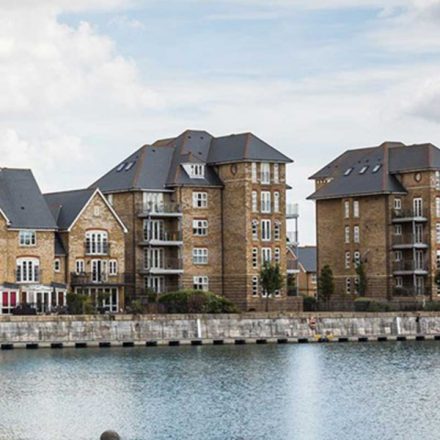Arkin v Marshall – Court of Appeal Judgment
The Court of Appeal has given judgment in Arkin v Marshall which was a challenge to the lawfulness of the Practice Direction staying residential possession proceedings for 90 days during the Covid-19 pandemic. James Harrison, who acted for HLPA as intervener in the case, summarises the decision of the Court of Appeal.
In response to the current Covid-19 pandemic, the Master of the Rolls issued an amendment to the Court rules on 27 March 2020 by way of Practice Direction 51Z (see this article on our website). Practice Direction 51Z stays all possession proceedings for a period of 90 days from 27 March 2020. An amendment to PD51Z was issued on 20 April. The amendment made it clear that the stay does not apply to trespasser cases, to claims for interim possession orders (usually based on anti-social behaviour) and to “an application for case management directions that are agreed between the parties”.
On 30 April 2020 the Court of Appeal considered the case of Arkin v Marshall. The case concerned the questions of (i) whether the stay is lawful, and if so (b) whether in the absence of agreement between the parties, judges can lift the stay in individual cases thereby requiring the parties to comply with case management directions.
Edwards Duthie Shamash acted for the Housing Law Practitioners’ Association (“HLPA”) who were granted permission to intervene in the case. HLPA’s intervention set out the results of an urgent survey of its members. The responses from more than 40 housing lawyers described the significant difficulties that would be faced by many tenants and homeowners if they had to engage with ongoing possession proceedings during the current lockdown.
The Court of Appeal handed down its judgment on 11 May 2020. In dismissing the appeal the Court held as follows:
- In the unusual circumstances in which the case arose, the challenge to the lawfulness of the Practice Direction was properly brought within the possession proceedings. It was not necessary to bring a separate claim for Judicial Review.
- Rule 51.2 of the Civil Procedure Rules (CPR) allows Practice Directions to modify or dis-apply the CPR for specified periods during “the operation of pilot schemes for assessing the use of new practices and procedures in connection with proceedings”. PD51Z is properly regarded as a pilot scheme because the stay of possession proceedings is being trialled in order to assess whether it is effective to ensure that the administration of justice, specifically the ongoing conduct of possession proceedings in a pandemic, and the enforcement of possession orders in a pandemic, does not endanger public health.
- PD51Z is not inconsistent with the provisions contained in Schedule 29 of the Coronavirus Act 2020 (which make changes to the statutory notice periods for bringing possession claims). This is because the Act changes the substantive law whilst PD 51Z imposes a temporary stay to “protect and manage County Court capacity, and to ensure the effective administration of justice without endangering public health during a peak phase of the pandemic”
- PD 51Z is not incompatible with either Article 6 or the fundamental principle of access to justice. The short delay to possession litigation enshrined in PD 51Z is justified by the exceptional circumstances of the coronavirus pandemic.
- The 20tth April amendment to PD51Z does not exclude from the stay all directions agreed between the parties. Rather the exclusion is limited to “applications for agreed directions” i.e. directions approved by the Court and embodied in a Court Order. There is an obvious value in the parties agreeing, and obtaining the court’s endorsement of, directions which will (a) take effect during the stay albeit they cannot be enforced during its currency (b) take effect on a date or dates post-dating the end of the stay; the value is that the parties will emerge from the stay with an already-established timetable, and avoid a potential rush to make applications immediately the stay is lifted.
- PD 51Z cannot be read as formally excluding the operation of CPR 3.1. Therefore a judge retains the power to lift the stay which it imposes. However, the proper exercise of that power is informed by the nature of the stay and the purposes for which it was imposed. The purpose was to lift the burden on judges and staff in the County Court and to avoid the risk to public health of proceeding with evictions would be avoided. By its nature that purpose is blanket in character and does not allow for distinctions between cases. The purpose of the stay would be “fatally undermined” if parties affected by the stay were entitled to rely on their particular circumstances – however special they might be – as the basis on which the stay should be lifted in their particular case. The Court made it clear that it would strongly disapprove of such applications and it suggested that the only exception might be where the stay would operate in such a way as to defeat the purposes of PD 51Z and endanger public health.
- The circumstances of the case did not allow the County Court Judge to lift the stay. The Judge was wrong to postpone the agreed directions until after the expiry of the stay because as the Order was made before the 20 April amendment to PD51Z he should not have countenanced any application but rather should have simply dismissed it. As for the position now in the light of the amendment to PD51Z, the parties are capable of complying with the directions they agreed whether or not the stay is lifted. The stay simply means that neither party will be able to apply to the court to enforce compliance with the agreed directions whilst it remains in place, even if those directions have been made under the express exclusion in paragraph 2A(c).
